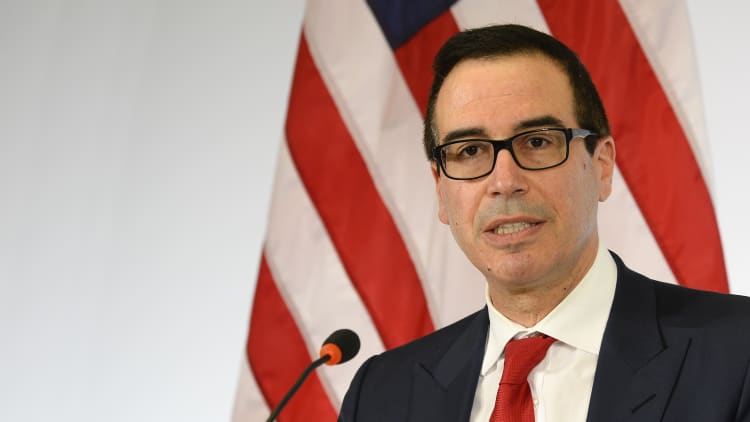
The U.S. missile attack on Syria prompted investors to add to their positions in oil but also safe haven plays, such as gold and bonds, ahead of the weekend.
Just after the Thursday evening attack, oil futures prices popped, but no large war premium was being built in. The U.S. attack, using Tomahawk missiles fired from ships, was prompted by Syria's alleged use of chemical weapons on civilians.
Oil was about 1 percent higher, with West Texas Intermediate futures trading at around $52.30 per barrel. Market reactions, however, were fairly muted and by Friday afternoon, some of the earlier moves were fading.
Syria is not a major producer of crude, but its proximity to Middle East producers and its relationship with Iran makes it more important to the oil market than it normally would be.

"People are nervous ahead of the weekend. If you have Iran and Russia in the mix, a significant amount of oil hangs in the balance in that regard," said John Kilduff of Again Capital.
Russia, which has been helping Assad consolidate power, took issue with the U.S. attack. Russia said it condemned the illegitimate actions of the U.S. and called it a flagrant violation of international law and an act of aggression. But its language went no further than that.
Treasury yields, which move opposite to prices, initially fell on news of the attack, but recovered some ground, after the U.S. response was viewed as being contained. Yet traders said buyers were active Friday, adding to positions. Markets are also watching the first major military action by the as yet untested Trump administration.
"Initially you got some worries," said John Briggs, head of strategy at NatWest Markets. He added the attack was not being seen as an escalation of military action.
"I do think the one thing that could bring a little bit of weekend risk is the idea that if [Syrian President Bashar Assad] is going to escalate or retaliate, it's most likely in the next 24 or 48 hours. You might have some reluctance to go home short fixed income."
In the stock market , there was even a positive view of the strike later Friday.
"The initial part of it is he's [Trump's] showing himself to be a kind of take charge guy. Obama never did this. Maybe he's redefining his presidency. I think that's a bit much but that's the kind of buzz you're hearing," said Art Cashin, UBS director of floor operations at the New York Stock Exchange.
Gold hit a five-month high Friday, trading more than 1 percent higher, but it gave up much of its gains before the close.
Kevin Grady, president of Phoenix Futures and Options, said gold got a boost from the Syria attack but then got another lift in early trading from the weak U.S. jobs report. By the end of the session, however, he said investors were bailing on some positions around the 1:30 p.m. ET settle, and gold futures ended the day at $1,257.30, up $4 on the day.
"I think it was the lack of follow-through and people didn't want to go home long," he said.
Grady said the 200-day moving average is $1,269.20 and gold has met resistance near that level, so unless there is a bigger military conflict, it may stay below that level.
"We just want to see if the situation escalates. I think that's the exact reason you see the stock market flat. People aren't sure what's going on. They want to see more news coming out," he said. As gold slipped, the rose and was up nearly 50 points in afternoon trading.
The was higher, trading at a near 1-month high, above 101.
Watch: Syria conflict risks to the oil market



